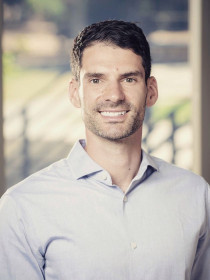
Phillip M. Ayoub
Connect with Phillip
About Phillip
Ayoub is a Fellow in the Centre for International Security at the Hertie School and serves as Associate Editor of the European Journal of Politics & Gender. He received a Ph.D. from the Department of Government at Cornell University in 2013, after obtaining a B.A. from the University of Washington and M.A. degrees from the University of North Carolina at Chapel Hill and Cornell University.
Contributions
How the Media Has Helped Change Public Views about Lesbian and Gay People
In the News
Publications
Argues that states problematically exploit LGBT norms to signal “modernity,” which can, however, translate into tangible legal successes for LGBT movement actors nationally.
Explores how multi-level discursive opportunities can emerge simultaneously for both movement and countermovement, leading to a contest of interpreting the politically potent symbols that come to the fore. We trace the trajectory of the LGBT movement’s frames over two decades, arguing that they are shaped by ongoing movement/countermovement interactions, as well as the multi-level discursive context in which they operate.
Explores backlashes to LGBT rights, asking such rights mobilize an active resistance in some cases and not in others. It shows that differing perceptions of threat define the way international norms are received in distinct domestic realms, and threat perception is heightened in cases where religion is historically embedded in the essence of the popular nation.
Tests to see whether contextual factors, those that allow lesbian women and gay men to freely express themselves or to gain cultural representation in the media, have driven this transformation. The results show that inter-cohort effects, or more liberal attitudes among younger people, are related to the pervasiveness of a nation’s mass media and to the presence of press freedom. In sum, global media consumption (in the form of a “Will and Grace Effect”) affects attitudes toward minorities.
Explores the domestic conditions under which international norms around LGBT rights are most likely to spread. The degree to which international norms resonate in various states – and become internalized within them – depends on domestic social movements and specific international channels that make political issues visible.
On political opportunities in social movement research, exploring the extent to which processes of Europeanization facilitate the political mobilization of and influence the strategies adopted by LGBT advocates. I also trace how activists mobilize and wield campaigns across borders.